Love Objects by Emily Maguire
Ashley Kalagian Blunt, Senior Program Officer
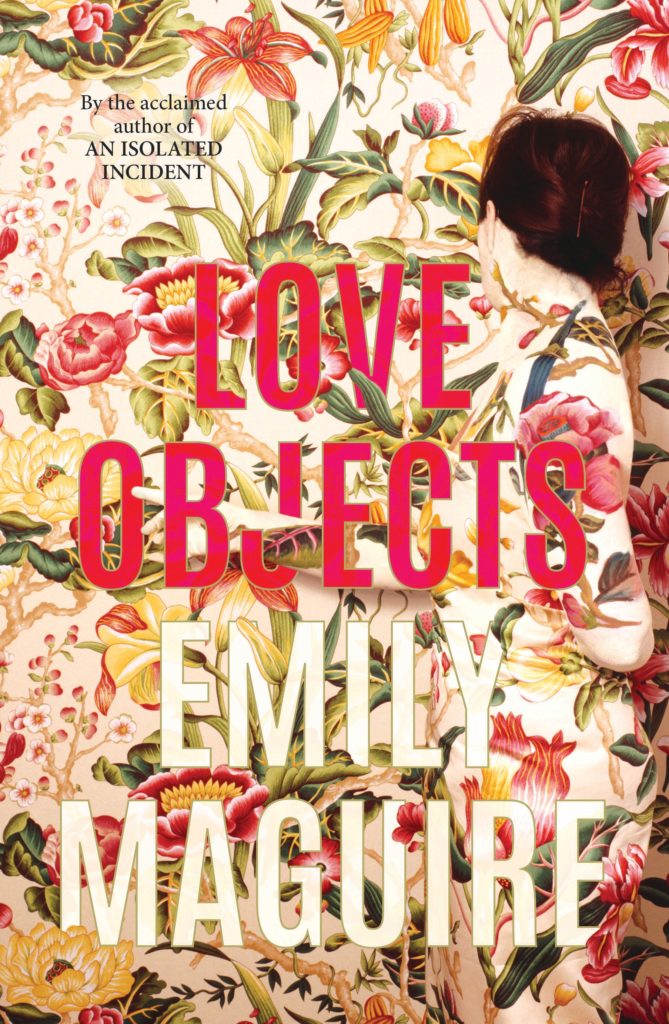
Emily Maguire teaches Writing NSW’s Year of the Novel, and in her own latest novel, she demonstrates the power of craft in a heartbreaking but ultimately consoling story. During her tenure as the Writer-in-Residence at the University of Sydney’s Charles Perkins Centre, she researched hoarding disorder, a little-understood mental illness. Her main character lives with this condition, and from her perspective, it enriches her life. She appreciates the beauty of everyday items – of every thing she encounters, honouring the unlived history of items discarded or overlooked by others. Nic is at turns profoundly relatable and maddening, and it’s this balance that makes Love Objects such a skilful narrative.
Memorial by Bryan Washington
Martyn Reyes, Project and Communications Officer

Memorial is the outstanding debut novel of Bryan Washington. It explores the best and worst parts of relationships (both romantic and familial) through the eyes of Benson, a Black day-care worker and Mike, a Japanese-American chef. Audiences are thrown into the couple’s story as Mike leaves Houston for Osaka to visit his dying father. However the timing couldn’t be worse, as Mike’s mother inconveniently arrives to visit her son. With Mike gone, we witness the uncomfortable yet humorous domestic situation between Benson and his new housemate.
Told in three sections, we get glimpses into both Benson and Mike’s perspectives as they question their relationship and attempt to connect with their respective families. It’s a daring, contemporary, sensual and funny debut. Movie production company A24 even picked it up to be adapted as a limited TV series.
Damascus
by Christos Tsiolkas
Jane McCredie, CEO
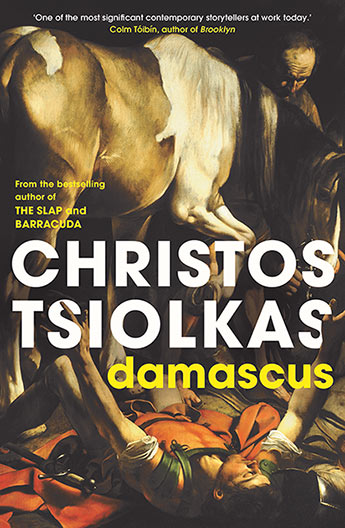
I’m reading Christos Tsiolkas’ epic novel about the early years of Christianity, Damascus. The central figure of the novel is the apostle Paul (or Saul, to give him his Jewish name), portrayed as a man riven by ambition and shame, which Tsiolkas links to repressed homosexuality. It’s a brilliant portrait of someone damaged by the strictures of a violent, hierarchical society. I found it illuminating to see how the moral codes of that society were designed to reinforce existing power structures: kindness to a slave, for example, is seen as a moral failing. I imagine that happens in all societies but it’s just less visible to us when it’s our own. Tsiolkas’ first-century world is a brutal place and this book won’t be for everybody. The descriptions of sexual violence against women and children are horrific, but are central to the story, not gratuitous. It’s an extraordinary read if you have the stomach for it.
Wolfe Island by Lucy Treloar
Rowena Tuziak, Membership & Operations Manager
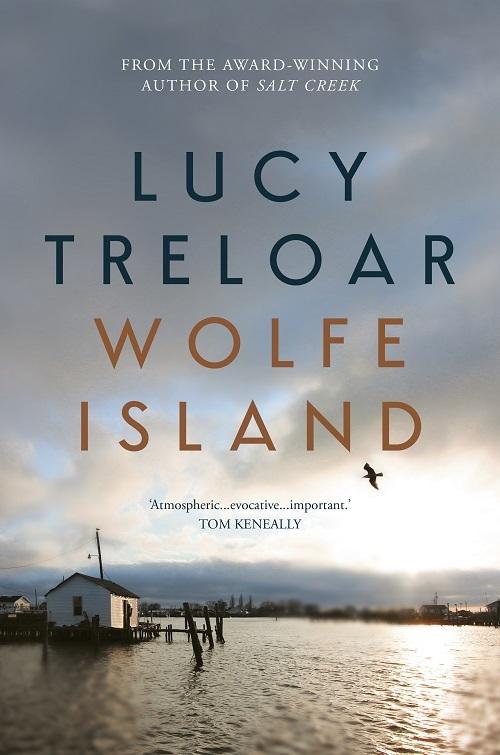
You can almost taste the salty sea spray on your lips in Lucy Treloar’s Wolfe Island. Haunting, evocative, and tragic in places, we are taken into a dystopian world of suspicion and survival.
Isolated from the world on her crumbling island, Kitty is protected from the crumbling of society on the mainland. Living alone with her wolfdog, Girl, Kitty’s life diverges following the sudden arrival of a group of young fugitives to the island, including her own granddaughter. Like the artwork Kitty fashions from piecing together discarded debris, these characters are broken but held together by their relationships with each other. Together they make a run for freedom, journeying north on the mainland, navigating their way under the watchful eyes of every suspicious, and sometimes violent, stranger they pass.
This work explores an alarmingly believable world of persecution, environmental devastation, and loss. It is also an incredibly beautiful portrayal of the importance of people and place. Much acclaimed, and with good reason, this is a must-read.
Sorrow and Bliss by Meg Mason
Claire Thompson, Program Officer
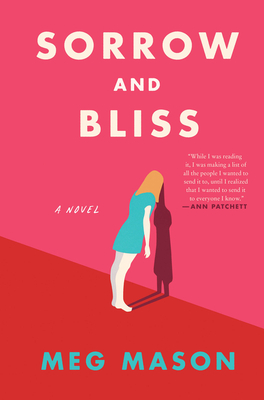
Sorrow and Bliss by Meg Mason is the best book I have read this year so far. Mostly sorrow with a bit of bliss, the novel follows 30(ish)-year-old Martha as she reflects on the events of her childhood, teens and twenties, to try to find the root cause of what is ‘wrong’ with her. To try to find out what exactly it is that sends her under her desk for days at a time, makes it impossible for her to leave her house, makes her throw things at her kind husband, makes her smash plates, makes her feel strange, like she doesn’t belong anywhere. In the in-between moments, Martha falls in and out of love, moves to Paris, moves back to London, laughs with her sister, argues with her mum and listens to her dad read poetry.
Mason moves effortlessly between past and present as she reveals the moments where Martha first started to feel this hollowness. The characters are well drawn and defined, with their own authentic personalities. Martha feels genuine and real, an empathetic character, but also a woman with many flaws who makes mistakes and is selfish and doesn’t apologise when maybe she should.
There were many passages I read more than once to appreciate it, because they were so good. Like this one when Martha is looking for a journal, ‘I chose one that was inexplicably thick, with twice as many pages as its shelf mates, because it said, on the cover, You Should Just Go For It. It was meant to sound carefree and motivating but for want of an exclamation mark, it came across as weary and resigned. You Should Just Go For It. Everyone Is Sick Of Hearing You Talk About It. Follow Your Dreams. The Stakes Could Not Be Lower.’ The book is filled with this kind of wry humour throughout, and it softens some of the bleaker moments. I recommend Sorrow and Bliss to anyone who likes dark British humour and sad things.
Say Nothing: A true story of murder and memory in Northern Ireland by Patrick Radden Keefe
Julia Tsalis, Program Manager
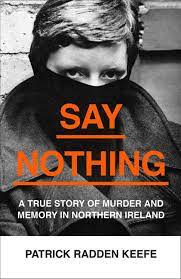
Say Nothing: A true story of murder and memory in Northern Ireland by Patrick Radden Keefe is the remarkable recounting of the Troubles in Northern Ireland. It begins in 1972 with the disappearance of Jean McConville, a Belfast widow and mother of ten children, who is never seen again. The damage inflicted on her children by this violent loss is incorporated into the wider history of the Troubles. By following the stories of individuals such as Jean McConville, the Price sisters, and Gerry Adams it illuminates key aspects of this very recent guerrilla war – the anti-Catholic agenda, IRA bombings, the hunger strikes, and the actions of Thatcher and her government – and the damage to all those involved.
The story unfolds with the pace and structure of a novel, but as is evidenced by the pages of references at the end it is a work deeply grounded in research and fact. It is a remarkable accomplishment to tell a story of such personal, political, and social significance while retaining a sense of balance and impartiality.
A Man Called Ove by Fredrik Bachman
Anita Matthews, Administration Officer
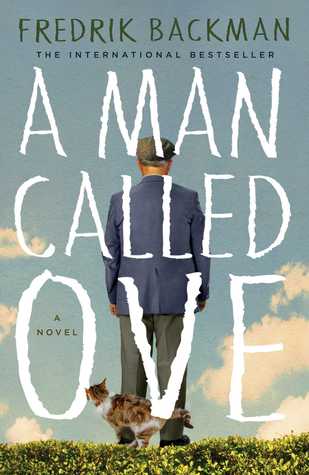
Translated from the Swedish in 2014, this novel was on the New York Times Best Seller List for 42 weeks.
Ove rhymes with Hoover. And like a vacuum cleaner, Ove is a character who has absorbed the dirt life has thrown at him and processes the ever-changing world he lives in from a primarily functional point of view. I believe a movie was made based on the book and I’m curious to know how Ove’s grouchy character could be captured as richly as Backman does in the written form, since so much of the story is Ove’s silent and dogged judgements on society, his neighbours and even a hapless cat. Despite Ove’s negativity, the book is funny. I laughed out loud many times at Backman’s astute and often black descriptions of the little things in life, sensing that in fact I was mostly laughing at myself.
His wife, on the other hand, always came up with insanities like “going by a sense of feel” and “taking it easy.” As if that was a way for an adult person to get anywhere in life. And then she always remembered that she had to make a call or had forgotten some scarf or other. Or she didn’t know which coat to pack at the last moment. Or something else. She always forgot the thermos of coffee on the draining board, which was actually the only important thing. There were four coats in those damned bags but no coffee. As if one could just turn off into a gas station every hour and buy the burned fox piss they were selling in there. And get even more delayed. And when Ove got disgruntled she always had to challenge the importance of having a time plan when driving somewhere. “We’re not in a hurry anyway,” she’d say. As if that had anything to do with it.
*
More from Writing NSW
Check out our full range of in-person writing courses in Sydney, our online writing courses and our feedback programs to see how we can help you on your writing journey. Find out about our grants and prizes, as well as writing groups across NSW, and sign up to our weekly newsletter for writing events, opportunities and giveaways.
